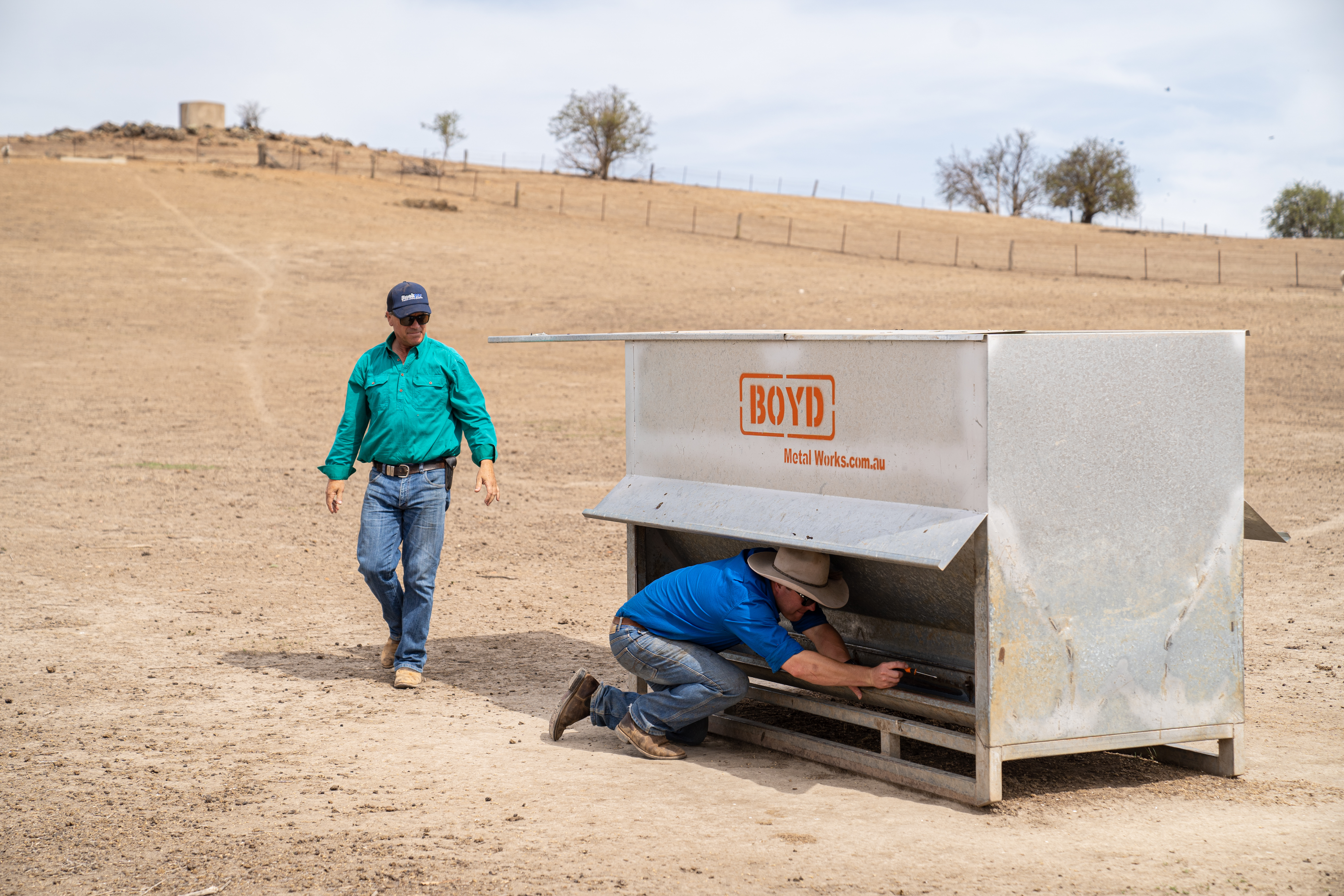Pushing through the drought of a lifetime
Chris Blunt is a third-generation farmer who runs a sheep grazing property east of Orange in Central West NSW.
The drought of 2020 was the worst that the property had seen in 100 years and for the first time in Chris' lifetime, the spring-fed creek which supplies water across the property had stopped running completely.
Chris said one of the hardest parts of the drought is coming home to an empty rain gauge when the neighbouring areas have received rain.
“It starts playing with your head,” he said.
“I’m usually very positive, but I can understand these guys who are under that pressure all the time, particularly in the west.
"You just want to shut the door, pull the curtains and not look outside because it’s all too hard.”
Chris found out about RIC loans through his son Nick, who worked in banking for five years.
“I’m very lucky, I’ve actually got an ex-banker on the staff,” Chris said.
“Nick’s been great because of his background.
"He’s used to the paperwork and knowing what we need and the banks need.”
Nick said the loan application process was what he expected it to be.
“It was spot on. I think they’re good questions to gauge how the business is going and where the business sees itself going.
“I suppose it’d be a bit overwhelming for someone who hasn’t had much experience with it. But you’re trying to ensure that you’re backing the best producers, or the people that are doing the right job, instead of people that are cutting corners and doing the wrong thing.
"You’re rewarding people that actually do a good job; businesses that will survive.”
Nick recommended applicants talk to their accountants or local Rural Financial Counsellors for help and advice.
“There’s more than enough assistance out there if someone wants to get an application done,” he said.
“It’s more about taking time out of the day, sitting down and actually doing the work. It’s not a hard process, but I think some people get a bit overwhelmed by it and put it in the too hard basket.”
Chris said it’s important to remember that many drought loan applicants are already under considerable emotional and mental stress.
“Whether they’ve had a fire, or drought, or both, it can be very difficult for some of those guys to get their head around anything at the moment because they’re so weighed down with every other little problem that they’re dealing with.”
The application process prompted Chris to look at the long term sustainability of "Bondonga" and exactly how the drought had affected the enterprise.
“It makes you sit down and really analyse where you’ve been and where you’re going,” he said.
Chris said it was important to realise that a RIC loan is not a handout.
“There’s still an old, very conservative attitude in the bush, even with some of our younger farmers that, ‘oh we don’t take handouts’," he said.
"But it’s not a handout.
"It’s a loan and you’ve got to pay it back."
“In the middle of a drought as savage as this one, it’s going to help us feed a lot of stock and a lot of breeding stock.
“Take advantage of it, it can make all the difference.”



